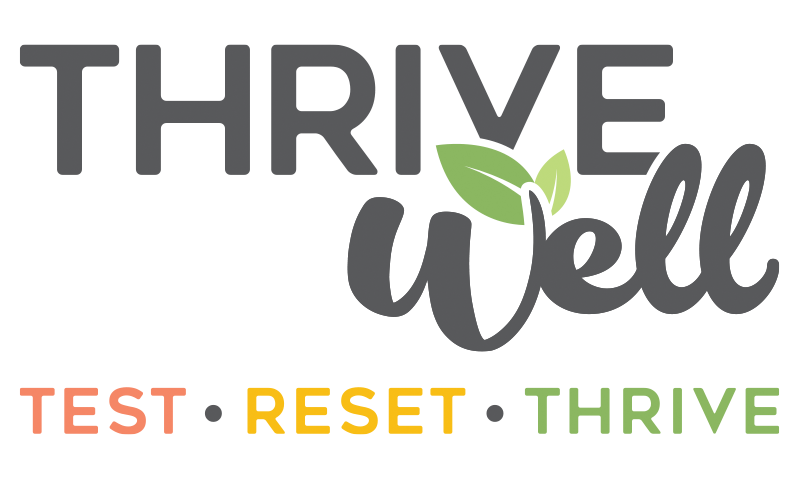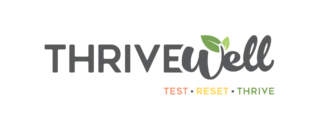Perhaps more than any other nutrient, iodine is often overlooked as essential to thyroid health and well-being in general. Few people understand their iodine intake or appreciate its impact, but balancing levels of this nutrient is crucial since both deficiency and excess can have serious health consequences, particularly for the thyroid. Are You Getting Too Much (Or Too Little) Iodine? If so, this blog is for you! We’ll discuss iodine’s role within the human body, how to ensure adequate intake and the importance of consulting a professional.
Iodine: The Misunderstood Nutrient
When talking about iodine, the first thing that goes through most people’s heads is the feeling that they are mistaken. People generally just take it for heavy metals or poison when, in fact, iodine is one of the many essential nutrients that perform multiple duties in the body. It is crucial to thyroid health because iodine is the salient part of hormones regulating metabolism. The dose of iodine you need is essential for your health as well.
The Essential Role of Iodine in Your Body
Iodine is an “essential nutrient” because it cannot be synthesized in the human body; therefore, it must be ingested through food or supplements. Iodine is essential to synthesizing the key thyroid hormones T3 and T4, which are critical to metabolism and energy. If such a necessary sum is not produced, the thyroid gland will not function correctly and may provide several possible health disorders, such as goitre or hypothyroidism.
Common Sources of Iodine
It is challenging to find iodine within the daily diet because it is not readily consumed in most diets. Some of the richest sources, however, are:
- Sea Vegetables: Seaweed, kelp, and dulse.
- Fish and Seafood: Cod and oysters are exceptionally high in iodine.
- Dairy Products and Eggs: Moderate sources that can contribute to daily intake.
- Iodized Salt: A simple way to supplement iodine in your diet, though it’s essential to monitor how much you consume to avoid excess intake.
- Kelp: A natural source of iodine that provides additional essential nutrients, such as magnesium, calcium, and potassium, supporting thyroid function without the risk of excessive iodine intake.
These notwithstanding, most people who either follow a vegan diet or do not partake in seafood do not often get these foods, which poses a significant risk to people with idiopathic deficiencies.
Iodine Deficiency Symptoms Expanded
In addition to common symptoms like fatigue, weight gain, and brain fog, iodine deficiency can also cause:
- Depression
- Muscle weakness
- Constipation
- Irregular menstrual cycles in women
- Puffy face
- Swelling in joints
How HTMA Detects Iodine Deficiency?
Our HTMA Deficiency Profiling Program, or Hair Tissue Mineral Analysis, is much more than a simple iodine test. The levels of many essential minerals measure how your body’s receptors work on minerals. Since minerals like selenium, magnesium, and zinc affect the uptake of iodine and the functioning of your thyroid, this is one of those essential tests you should have done along with bloodwork to get a complete view of your thyroid health and all the hidden imbalances and deficiencies that simple tests may not include.
Kelp vs. Iodine: Why Kelp is Better
Unlike isolated iodine supplements, kelp provides a naturally balanced source of iodine and other cofactors like magnesium, calcium, and potassium. These cofactors help to regulate the proper functioning of the thyroid, ensuring that iodine is not provided to the body in high doses that may antagonize its functioning. Kelp minimizes the chances of taking excess iodine, which causes thyroid dysfunction while providing all the needed nutrients for thyroid functions in the body.
The Importance of Comprehensive Testing
Before you start taking iodine, you must understand the bigger picture. Excessive iodine intake without knowing your current levels can lead to imbalances and even worsen thyroid issues. This is why we combine HTMA and bloodwork to assess your mineral profile, thyroid hormone levels, and iodine status.
Consider an iodine loading test, which measures how well your body absorbs and processes iodine. This provides an even clearer view of whether your iodine needs are met through diet or supplementation.
The Consequences of Iodine Deficiency
Iodine has long been viewed as a significant global health challenge. Iodine deficiency influences the correct functioning of the thyroid gland, leading to goiter and hypothyroidism. Consequences of iodine deficiency may comprise weight gain, fatigue, sensitivity to cold, and trouble focusing. Iodine deficiency during pregnancy is a critical threat during fetal development; it is seriously affected cognitively and physiologically.
The Risks of Excess Iodine
Too much iodine can also destroy the thyroid. Excessive iodine intake may cause thyroid malfunction, resulting from hyperthyroidism or immune thyroid diseases such as Hashimoto’s thyroiditis. This is because increased production of thyroid antibodies may lead to inflammation and destruction of the thyroid gland. Symptoms of excess iodine intake may include racing pulse, sweating, and unintended weight loss.
Supporting Your Thyroid with Cofactors
For optimal iodine absorption and thyroid health, it’s important to include essential co-factors such as:
- Selenium: Crucial for converting thyroid hormones
- Magnesium: Supports hormone regulation
- Zinc: Helps the thyroid hormone receptor sensitivity
- Celtic Sea Salt: A natural source of trace minerals, enhancing overall mineral balance
These nutrients support thyroid health, preventing imbalances from iodine supplementation alone. Often, iodine doses in supplements are too high and come with risks. Ensuring you’re getting the right amount of each nutrient is essential.
Testing Your Iodine Levels
Thyroid testing is a requirement before adjusting your iodine. A complete thyroid panel would give you an idea of your status on the issues of iodine and thyroids. Among the tests listed below, these are some of the most significant ones:
- Free T4: Measures the active form of the T4 hormone.
- Total T3: Assesses the body’s ability to convert T4 to the more active T3 hormone.
- Thyroid Antibodies: It detects your automobile response toward the thyroid, indicating potential autoimmune thyroid conditions.
Iodine supplementation without proper assistance, however, can exacerbate the existing condition or provoke new ones about thyroid conditions.
Finding the Right Balance
If You’re Getting Too Much Iodine
- Monitor Salt Intake: Excessive iodine often comes from iodized salt. Switching to sea salt, which contains a lower concentration of iodine, can help regulate your intake.
- Check Supplements: Be cautious with multivitamins and supplements, as they may contain iodine that contributes to your daily intake.
If You’re Not Getting Enough Iodine
- Incorporate Iodine-Rich Foods: Increase your intake of foods like seaweed, fish, and dairy products if your diet allows.
- Consider Iodine Supplements: If dietary changes are insufficient or impractical, an iodine supplement might be necessary. This should always be done under the guidance of a healthcare provider, who can determine the appropriate dosage and monitor your thyroid levels.
The Importance of Professional Guidance
Given the tightrope on which the intake needs to be balanced, care must be taken with this nutrient. A consultation with a healthcare professional, preferably a functional medicine practitioner, can give you a tailored view of your needs through testing, result interpretation, and dictation of diet and supplementation.
Direct Offer for Testing and Consultation
Are your mineral receptors optimized? Comprehensive testing ensures your body can absorb and utilize iodine effectively. Our HTMA program assesses the state of your mineral balance and detects deficiencies, giving you a clear view of your thyroid health. We offer consultations to discuss whether iodine or kelp is best for you, allowing us to tailor recommendations specifically for your needs.
Book your consultation today to ensure the right minerals support your thyroid health. If kelp is the better option, we can directly order it for you and guide you through proper usage. Take this step towards a healthier thyroid today!
Conclusion
It is rare to mention iodine among nutrients, but talking about the importance of iodine on the health of thyroid function is indubitable. Balancing iodine can significantly affect your metabolism and energy levels, depending on your state of health. Take it as a point to ask your doctor about iodine at your check-up appointment and get tested for thyroid functionality if you haven’t done so. A healthy thyroid is the secret to leading a healthy life, and iodine’s central role in that equation is worth taking all seriousness while observing.
When you understand the role of iodine and manage your intake, you will look forward to taking proactive steps toward better thyroid health and overall well-being. If you need more clarification about your iodine levels or even your general thyroid health, schedule a consultation with a functional medicine practitioner to begin the path toward the best possible health.
Ready to take control of your health? ThriveWell Solutions offers personalized health consultations to help you find the right balance between your iodine intake and thyroid health.
Start your journey towards optimal well-being today by scheduling a consultation.
Subscribe to our newsletter for more health, nutrition, and wellness tips. Plus, gain access to exclusive guides, recipes, and much more!
Join the ThriveWell community now!



